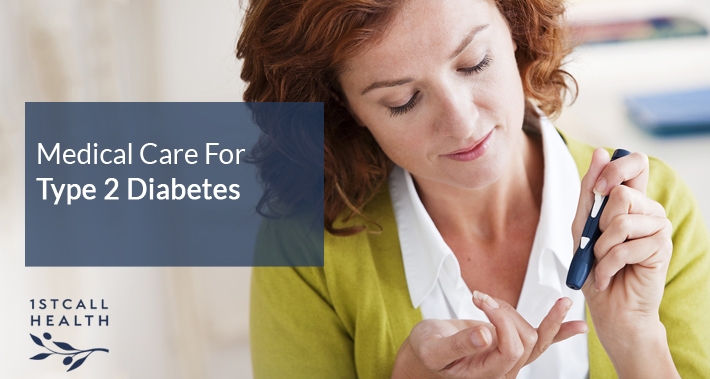
Diabetes can sound like an intimidating diagnosis.
While the complications from untreated type 2 diabetes can get serious, this illness doesn’t have to be scary.
With the right treatment plan, type 2 diabetes can be effectively managed and you can keep doing the things you love.
Here at 1stCallHealth, we’re a Washington DC medical clinic and we’re well versed in medical care for type 2 diabetes.
Let’s take a closer look.
What Is Type 2 Diabetes
Type 2 diabetes is a chronic illness related to how your body uses the sugar, or glucose, in your blood.
The cells in your body rely on glucose for energy.
Insulin regulates blood sugar by moving glucose from your bloodstream into your cells.
If you have type 2 diabetes, your body can’t respond to insulin properly.
This can lead to a variety of health concerns.
Type 2 Diabetes Symptoms
Early symptoms of type 2 diabetes can be easy to miss.
These symptoms include:
- Feeling hungry almost all the time
- Fatigue and lack of energy
- Thirst that won’t go away
- Needing to urinate often
- Blurry vision
- Numbness, tingling, or pain in your hands or feet
If you leave type 2 diabetes untreated, your body will start to draw energy from your muscles, organs, and other tissues.
This can cause the more serious symptoms seen in advanced type 2 diabetes, including:
- Rapidly worsening vision
- Numbness in your arms and legs
- Kidney disease
- Gum disease
- Heart attack
- Stroke
What Causes Type 2 Diabetes
Type 2 diabetes occurs when your body becomes resistant to insulin.
Insulin is a hormone that’s naturally produced by special cells in your pancreas called beta cells.
Insulin resistance means your body isn’t using its supply of this hormone effectively.
Insulin resistance is usually brought on by lifestyle factors like diet and physical activity.
RELATED: The Hidden Dangers Of Processed Sugar
In addition, you are more likely to be diagnosed with type 2 diabetes if:
- You have a family history of developing type 2 diabetes
- You have a family history of obesity, which is linked to the risk of insulin resistance
- You are 45 years or older
- You are Black, Hispanic/Latino, or Native American
Type 2 diabetes can also have a domino effect, making symptoms more severe the longer they go untreated.
Insulin resistance triggers your pancreas to produce more insulin, increasing the stress on this organ.
This added stress can damage the beta cells in your pancreas.
With enough cell damage, your pancreas can stop making insulin altogether.
Insulin resistance can also lead your body to get energy from your muscles, organs, and other tissues.
This can cause tissue damage and tissue loss, which can make your symptoms worse.
How is Type 2 Diabetes Diagnosed?
Talk to your 1stCallHealth care provider right away if you notice early symptoms of type 2 diabetes.
Your care provider may order blood tests to get more information.
Diagnostic bloodwork for type 2 diabetes may include:
Hemoglobin A1C Test
This test is also called a glycosylated hemoglobin test.
It measures your average blood glucose levels for the past two to three months.
Fasting Plasma Glucose Test
This test identifies the glucose level in your plasma.
Plasma is the liquid in your blood that carries your blood cells, platelets, and nutrients through your blood vessels.
Oral Glucose Tolerance Test
This test checks your ability to process glucose before and after drinking a dose of glucose.
In some cases, you may need to see an endocrinologist – a doctor specialized in hormones – who works with diabetes patients.
Type 2 Diabetes Treatment Options
If you get a type 2 diabetes diagnosis, your 1stCallHealth care provider will talk with you about management and treatment.
You will need to monitor your blood glucose levels on your own.
Your care provider will show you how to do this.
Your treatment options will include recommendations about diet, lifestyle, and medication.
1. Eating A Type 2 Diabetes Diet
Diet is an important factor in managing your blood sugar and avoiding complications like heart disease.
If you are prediabetic or have a family history, the diet recommended for type 2 diabetes can help you avoid diabetes.
Carbohydrates
When choosing carbohydrates, choose complex carbs containing lots of fiber and less starch.
Avoid very starchy foods, sugary snacks like packaged cookies and cereal, and baked goods made with white flour.
Choose whole fruits and dried fruit with no added sugar over juices, sweetened smoothies, or processed fruit snacks.
Include more beans and lentils in your diet.
Avoid refined baked goods like white bread and pastries, choosing whole grains like oats and quinoa instead.
Include low-starch vegetables like spinach, broccoli, cauliflower, and carrots.
Fats
If you aren’t already limiting your intake of trans and saturated fats, now is a great place to start.
Red meat, dairy, margarine, prepared meals, and processed snacks are all sources of trans and saturated fats to avoid.
But that doesn’t mean you have to avoid all fat.
Focus on foods that are rich in Omega 3 Fatty Acids, like:
- Fatty fish, like tuna, salmon, sardines, mackerel, halibut and cod
- Some nuts and seeds like flax seeds, walnuts, and chia seeds
- Vegetables like spinach, Brussels sprouts, and kale
- Omega 3 enriched eggs, meat, and dairy
You can also enjoy mono and poly unsaturated fats from olive oil, avocados, almonds, and pecans.
2. Lifestyle Changes
Lifestyle factors are a major contributor to type 2 diabetes, and an important part of managing your illness.
Let’s take a closer look at them.
Eating On The Go
The hidden sugar and refined carbs in processed food and fast food can lead to spikes in your blood sugar and insulin levels.
The size, number, and regularity of your meals can also impact insulin resistance.
If you eat on the go and don’t have convenient, healthy options, your 1stCallHealth care provider can help you find alternatives.
Physical Activity
Regular physical activity has been shown to improve your body’s response to insulin.
Healthcare professionals recommend that adults get 150 minutes of moderate to intense physical activity each week.
This can include housework that gets you to work up a sweat, brisk walks, recreational sports, or workouts at the gym.
Try to find a mix of activities that help you work your muscles and get your heart rate up.
If you don’t get a lot of movement in your daily routine, start introducing more movement by:
- Getting up to stretch every 20 minutes
- Going for a walk each day
- Trying a bed or chair yoga routine
Body Fat Management
If you’re overweight or obese, your body may be more likely to resist insulin.
Healthy eating and physical activity help regulate your glucose and insulin in general.
But fatty tissue in your body responds to insulin differently than other tissues.
You may need to make more specific changes to further improve how your body processes insulin.
Strategies like muscle building, knowing when to eat, and balancing protein, fat, and carbohydrates in your diet may help.
Your 1stCallHealth care provider can help you find solutions that work for your body and your life.
Stress Management
Of course, what we eat is about more than just nutrition.
If you’re feeling stressed or anxious, you might turn to your favorite foods for a dopamine hit.
But if these same foods are linked with your diabetes, your 1stCallHealth care provider can help you find healthier ways to relieve your stress.
RELATED: Adaptogenic Herbs To Help Soothe Your Anxiety Naturally

3. Medications for Type 3 Diabetes
Depending on your condition, your 1stCallHealth provider can explore some different medical options.
These may include, but are not limited to, what you see below.
Dipeptidyl Peptidase 4 (DPP-4) Inhibitors
Dipeptidyl peptidase 4 (DPP-4) inhibitors are milder medications that help lower your blood glucose.
Glucagon Like Peptide 1 Agonists
Glucagon like peptide 1 agonists slow down your digestion and improve levels of glucose in your blood.
Meglitinides
Meglitinides are taken shortly before meals to stimulate your pancreas to release more insulin for a short period.
Metformin
Metformin is prescribed to lower the glucose levels in your blood and improve your body’s response to insulin.
This is one of the most commonly prescribed medications for type 2 diabetes.
Sodium Glucose Cotransporter 2 (SGLT2) Inhibitors
Sodium glucose cotransporter 2 (SGLT2) inhibitors help your kidneys filter sugar out of your blood and into your urine.
Sulfonylureas
Sulfonylureas are oral medications that help your body produce insulin.
Thiazolidinediones
Thiazolidinediones increase your insulin sensitivity.
Your 1stCallHealth care provider will discuss medications with you to find the best options.
What Happens If You Don’t Treat Type 2 Diabetes?
Unmanaged type 2 diabetes can impact almost all the systems and organs in your body.
Possible complications include:
- Bacterial and fungal infections of the skin
- Hearing loss
- Eye damage
- Vision loss
- Glaucoma and cataracts
- Hypoglycemia (low blood sugar)
- Hyperglycemia (high blood sugar)
- Nerve damage
- Vomiting, diarrhea, and constipation
- Numbness and tingling in the hands, feet, arms, and legs
- Poor circulation to extremities
- Reduced ability to heal wounds
- Gangrene
- Needing to have your leg amputated
- High blood pressure
- Increased and earlier risk of heart attack amongst women
- Increased risk of erectile dysfunction
- Increased risk of heart attack and stroke
Book Your Appointment With 1stCallHealth Today
Treatments for type 2 diabetes are effective and well developed.
Many people with type 2 diabetes manage their conditions and live comfortable and happy lives.
Book your appointment with 1stCallHealth today to find the treatment options that will work for you.
1stCallHEALTH
1331 H St NW Ste 200,
Washington, DC 20005
(202) 590-0009
– https://goo.gl/maps/MVhjkz2jqynWpsgo6
1stCallHEALTH provides affordable access to primary care services. We believe that everyone deserves affordable, high quality primary care. Our vision is to challenge the status quo, focus on the individual, and empower personal control to change the way we think about healthcare.




